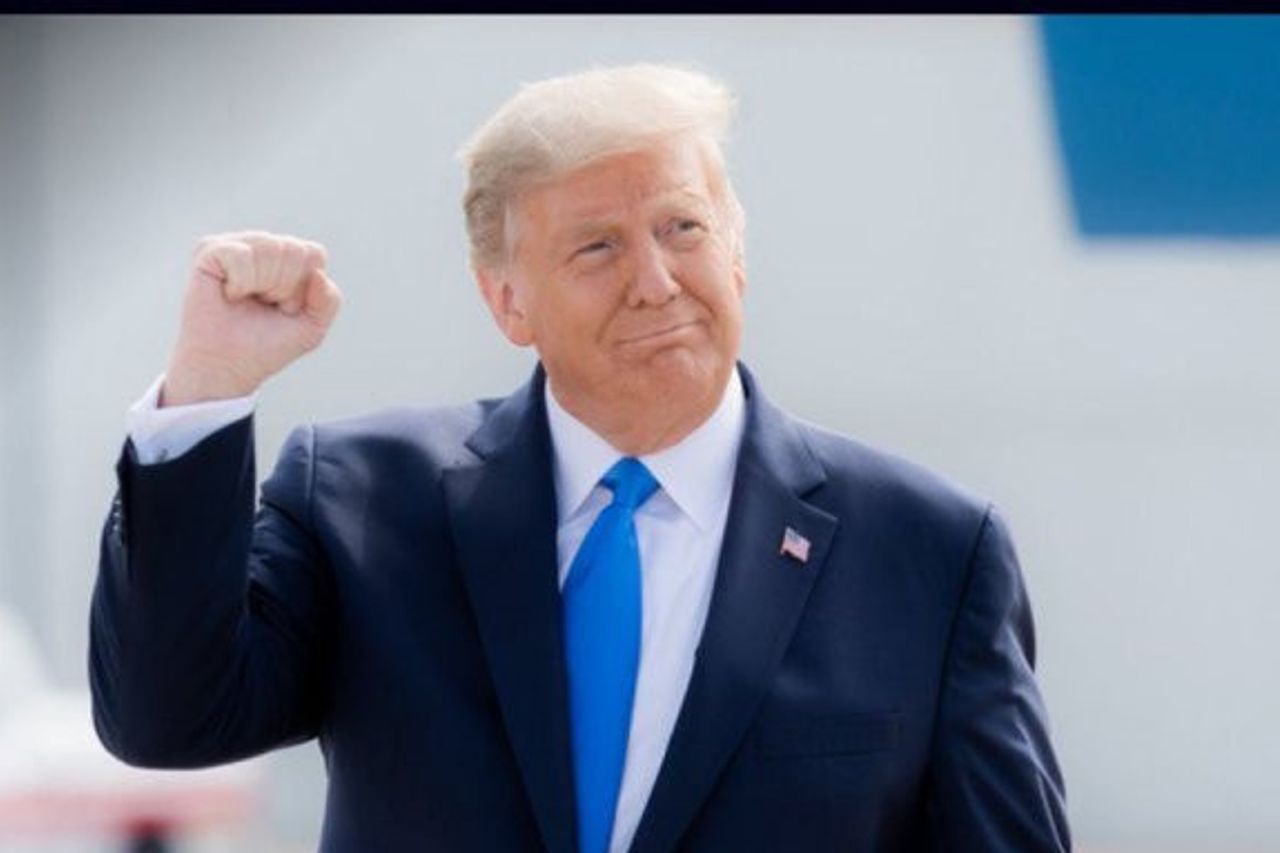Because Of TikTok, Trump And Members Of The Republican Party Have Different Opinions

JAKARTA President-elect Donald Trump has asked the Supreme Court to block the ban on TikTok which will be imposed in the United States on January 19. This large case raises the conflict between the protection of the right to free speech regulated by the First Amendment to the US Constitution and national security concerns regarding China's short video app, TikTok.
Meanwhile, a number of Republican allies from Trump actually took the opposite stance, which further strengthens legal and political debates over this platform.
This difference of views adds to pressure on the Supreme Court, which has a conservative majority of 6-3, in determining the fate of TikTok. The app is used by about 170 million monthly active users in the United States and is one of the world's most popular platforms.
This is the most significant case of free speech in at least a generation, said Timothy Edgar, a former US national security official who is now teaching at Brown University. Edgar added that if TikTok was truly banned, the issue of freedom of speech threatened in this case would be the largest in the history of the Supreme Court.
TikTok faces a ban after Congress passed legislation with bipartisan support last year. The law requires ByteDance, China-based parent company TikTok, to sell the app or face bans in the US.
President Joe Biden signed the law on the grounds of concerns that TikTok could be used by the Chinese government to access user data or even spy on Americans.
However, TikTok and ByteDance denied this accusation. In court documents, they stated that the law violated the First Amendment to the US Constitution, which protects free speech from government interference.
TikTok warns that this law can create bad precedents that allow Congress to ban anyone from speaking simply because of relationships with foreign entities.
SEE ALSO:
National Security and Data Protection
The US Department of Justice, which represents the government, defended the law on the grounds that TikTok poses a national security threat. The government highlights TikTok's ability to collect large US user data, from geographic locations to private messages, as well as the potential of this app to manipulate content its users see.
"Allowing TikTok to continue operating without cutting ties with the Chinese Communist Party means endangering American citizen data and opening up opportunities for exploitation by foreign governments," the attorney generals from 22 states wrote in their document in favor of the law.
One of the main supporters of this move is Montana's Attorney General Austin Knudsen. Montana previously tried to ban TikTok at the state level, but the effort was blocked by federal courts. Now, they are joining other states to support national bans.
Donald Trump, who will start his second term as president on January 20, has shocked many with his changing attitude towards TikTok. During his first term of office, Trump tried to block the app and forced ByteDance to sell TikTok to a US company. However, this time, Trump actually opposed the ban.
In a court document filed by his lawyer, John Sauer, Trump stated that he has a special place' for TikTok, a platform he says has helped his political campaign achieve billions of impressions. Trump argues that this issue must be resolved through political means, not by direct ban.
President Trump opposes the ban on TikTok at this stage and is looking for a solution through political channels once he begins taking office, Sauer wrote, which is also Trump's choice to serve as a general US solicitor.
This attitude is sharply different from many other Republican politicians. Mitch McConnell, a former Senate majority leader from the Republican Party, even likened TikTok's lawsuit to a hard-headed criminal who asked for a postponement of the execution.
Prohibition Implications
Legal experts warn that the Supreme Court's decision will have a major impact on internet freedom in the United States and the world. If this law is enforced, the US will be in a position to ban other digital platforms that have major engagement with foreign investors.
"If this ban is enforced, the impact will expand not only on TikTok but also on other platforms such as Telegram or other international applications," said Edgar.
Experts also note that the ban could lead to TikTok gradually becoming unusable in the US, although users may still be able to access downloaded apps. However, without software and security updates, the app will likely become obsolete over time.
In addition, pressure on big tech companies is also increasing. On December 13, 2024, a group of US lawmakers sent a letter to Apple and Google asking them to prepare to remove TikTok from their app stores after the January 19 deadline. The move is designed to enforce the ban if the law remains in effect.
The case comes amid rising trade tensions between the world's two largest economies, the US and China. TikTok's ban is also part of a broader move to limit the influence of Chinese technology on the global market.
However, not all parties agree with this move. Some TikTok users and advocacy groups have free speech stating that the ban is more rooted in politics than true national security concerns. They also note that rival platforms such as Facebook and Instagram, owned by Meta, can benefit if TikTok is banned.
The decision of the Supreme Court in this case will be an important determinant for the future of TikTok in the United States. If this ban is enforced, the app will be the first major social media platform banned in the country, creating a new precedent for digital platform regulation.
For many parties, including TikTok users, technology companies, and policymakers, this case is not only about an application, but also about government power constraints in regulating technology and free speech. With more than 170 million monthly active users, the fate of TikTok is not only relevant to the digital world, but also to basic rights regulated by the US Constitution.


